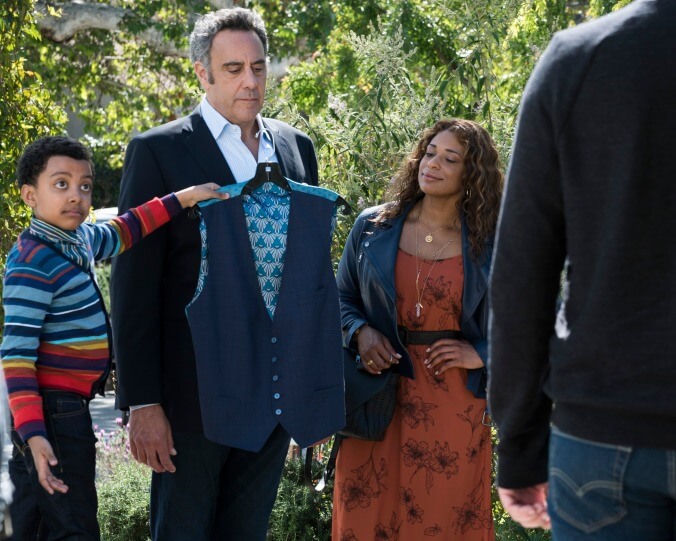Single Parents’ creators on bringing some Fox edge to an ABC family comedy

For seven seasons of New Girl, creator Liz Meriwether and writer JJ Philbin told stories of “weird, broken roommates” who gradually progressed through the milestones of adulthood: jobs that became careers, evolving friendships, settling down, pulling elaborately crummy pranks, having kids. The last item on that list is especially relevant to the new ABC sitcom they created together: Single Parents, which centers on a group of friends—played by Brad Garrett, Leighton Meester, Kimrie Lewis, and Jake Choi—supporting one another through the trials of raising kids on their own. In the pilot, they meet Will Cooper (Taran Killam), who’s coped with the end of his marriage by diving headlong into a doting-fatherhood vortex of living-room trampolines, Moana sing-alongs, and general negligence of his own wants and needs. At this summer’s Television Critics Association press tour, The A.V. Club spoke with Meriwether and Philbin about their new show, bringing some Fox edge to an ABC family comedy, and Philbin’s kids’ olfactory influence on Single Parents.
The A.V. Club: What was it that attracted you to this angle on parenting?
JJ Philbin: We were telling a lot of parenting stories in the last season of New Girl—Schmidt and Cece had a baby, so my boring parenting stories that had no relevance for all of the years before that, suddenly I was sharing. We were also talking about that kind of stuff a lot just because Liz was newly pregnant. She was having that feeling of “What if I’m just a fuckup? How can I do this?”
Liz Meriwether: “I’m not ready!”
JJP: And so a lot of my stories about parenting were about being bad at it and feeling flawed and trying to keep up with my work, just all of the things that I think go into [what] any parent deals with. And Liz was like, “I feel like this is a world that we could get into—this feels juicy. I feel like we could tell these stories.”
LM: On New Girl, we’d been with the characters for six years, and then they had a kid. Those were deeply fucked-up characters [Both laugh.], and then they had a kid. There’s plenty of shows about parenting, but it felt like something that hadn’t fully been explored, or parents really trying to be adults and parents at the same time. The idea of them being single—we both have single parents in our lives even though we aren’t single parents. That was in our minds, but also we just love love stories on TV shows. We were always the people in the New Girl room that were trying to get Dave Finkel and Brett Baer [Meriwether’s fellow showrunners] to do more relationship stories. I think we both just got really excited about the idea of “Oh, if all the characters are single, we can tell dating stories and we can tell our crazy family stories!” And married parents are kind of smug and boring!
JJP: We felt like that made them underdogs in a fun way: people who are still looking for love. Those were the types of stories that we enjoyed writing. New Girl was ending, and it had been my home for seven years, and I was having a moment of like “Don’t leave me, Liz!” I wanted to keep working with her in any way.
LM: Likewise.
JJP: The idea that we could take the stories that we were doing on New Girl, which were about growing up and figuring out who you are and finding your soul mate, and almost go a step farther—which was a natural thing that was happening during our time on the show. Over those seven years, Liz went from being single to meeting her husband to having a baby. It was a natural evolution, and it felt fun and interesting to grow up into the next phase of a show together. It was a no-brainer: Once Liz pitched that concept, all the ideas came so fast and furious. I had so much fun for the last seven years sitting in a room and pitching jokes with her. I can’t believe we get to do this again, because for so long I thought that when New Girl ended, that part of my life ended. It’s the most unexpected gift where we get to do this part.








































